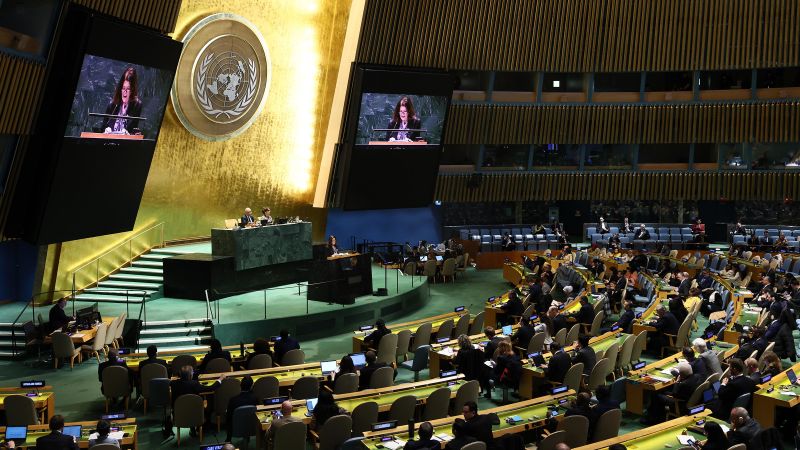Diplomatic Shocker: US Breaks Ranks, Sides with Russia in UN Ukraine War Vote

In a shocking diplomatic twist, the United States unexpectedly aligned with Russia during a United Nations General Assembly vote, breaking from its long-standing policy of supporting Ukraine. On Monday, both nations voted against a resolution that condemned Russia's ongoing military invasion, marking a surprising departure from the United States' previous stance of strongly opposing Russia's aggressive actions in Ukraine.
This unprecedented move has raised eyebrows among international observers and diplomats, who have grown accustomed to the United States consistently criticizing Russia's military intervention. The vote signals a potential shift in the complex geopolitical landscape and has left many questioning the underlying motivations behind this unexpected alignment.
The resolution, which sought to condemn Russia's war against Ukraine, typically would have received strong support from the United States. However, this latest development suggests a potentially significant change in the diplomatic approach of the U.S. towards the ongoing conflict, leaving many to speculate about the future of international relations and support for Ukraine.

